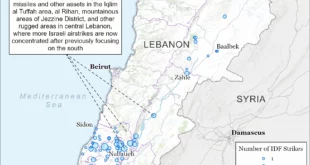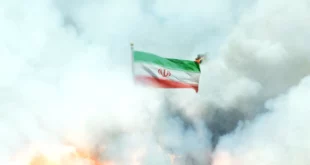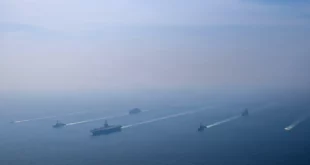 TEHRAN (FNA)- Iran said on Saturday it would sell gas to Crescent Petroleum of the United Arab Emirates if the price previously agreed was raised, cautioning that it would channel rich reserves into home consumption otherwise.
TEHRAN (FNA)- Iran said on Saturday it would sell gas to Crescent Petroleum of the United Arab Emirates if the price previously agreed was raised, cautioning that it would channel rich reserves into home consumption otherwise.
“If the price in this contract is corrected the export of gas will go through, otherwise the gas from the Siri region will be transferred via a 32-inch, 270-km long pipeline under construction now from Assalouyeh to the country’s interior,” Iranian Oil Minister Gholam Hossein Nozari told FNA.
Siri is an offshore area of the Persian Gulf near the Salman gas field that will supply Crescent if a deal is agreed. Assalouyeh is capital of Iran’s gas industry on the Persian Gulf coast.
The Crescent deal was initially signed in 2001 but hydrocarbon prices have soared since then.
Elsewhere, Nozari also told FNA a Pakistani team would visit Iran in days for talks on another gas export project that has been under discussion for years.
Pricing has also delayed a deal to build a gas pipeline to Pakistan and on to India, although testy relations between the Pakistani and Indian governments have also held up talks.
Iran and Pakistan initiated a Gas Sales Purchase Agreement earlier this year. India and Pakistan have also resolved all bilateral issues including transit fee which saw New Delhi boycotting IPI pipeline talks for about a year.
India has more or less agreed to give Pakistan a transit fee of $200 million per year, which is equivalent to $0.60 per million British thermal unit for allowing passage of the pipeline through that country.
India and Pakistan finally agreed in February 2007 to pay Iran $4.93 per million British thermal units ($4.67/GJ) but some details relating to price adjustment remained open to further negotiation. There was a breakthrough in the talks in April 2008 when Iranian President Mahmoud Ahmadinejad visited Pakistan and India.
“In the course of the next two days a Pakistani team will come to Tehran to follow up on negotiations,” Nozari said.
“Iran’s proposal in the … pipeline is attaining a formula wherein the final sale price to Pakistan would be set a year before delivery,” he added.
Iran plans to start exporting gas to Pakistan in 2011. Iran has completed half the pipeline, which can carry 110 million cubic meters of gas a day, National Iranian Gas Company (NIOC) said in April.
The visit to Iran by the Pakistani delegation is aimed at a discussion of various aspects of the project, including the volume of gas exports, project time line, delivery point and pricing.
The oil minister also stated that obtaining finance, supplying pipes and constructing the pipeline, which will pass through mountainous areas, is likely to take 5-6 years.
The minister said that the new formula suggests pricing changes consistent with market fluctuations.
According to the project proposal, the pipeline will begin from Iran’s Assalouyeh Energy Zone in the south and stretch over 1,100 km through Iran. In Pakistan, it will pass through Baluchistan and Sindh but officials now say the route may be changed if China agrees to the project.
The gas will be supplied from the South Pars field. The initial capacity of the pipeline will be 22 billion cubic meter of natural gas per annum, which is expected to be later raised to 55 billion cubic meter. It is expected to cost $7.4 billion.
Iran exports gas to Turkey and has a deal to sell 3 million cubic meters of gas per day to neighboring Armenia in return for electricity.
An Iranian official said this year the Armenian deal would come into effect in October but said this depended on Armenia.
“We have completed the project on our part and we are fully prepared to launch exports. It is Armenia’s problem, as it lacks readiness to receive gas at its end,” Nozari said.
Iran also imports gas from Turkmenistan, to its northeast, so it can supply a region of Iran that is difficult to reach from its national pipeline grid and gas fields in the south.
Turkmenistan cut gas supplies to Iran last winter, a move Iranian officials said at the time was because it wanted a higher price. Supplies have since resumed but the two sides are still discussing pricing.
“The gas price from Turkmenistan must be based on a win-win agreement as both their resources must be preserved and our purchase should have economic justification,” Nozari said.
 Eurasia Press & News
Eurasia Press & News



